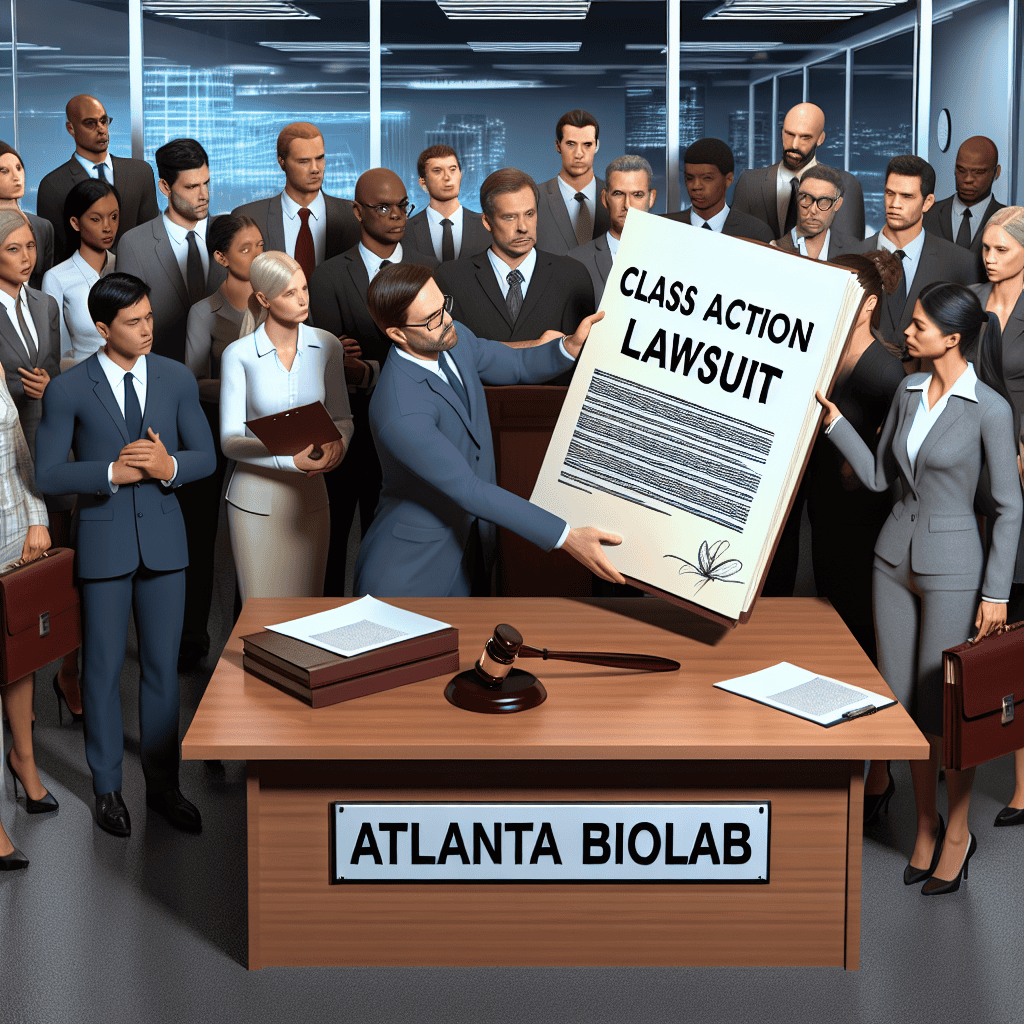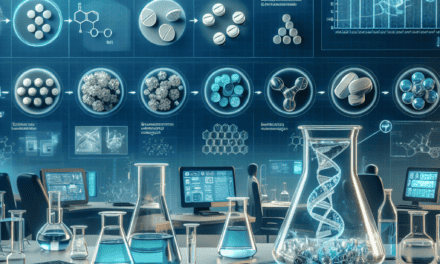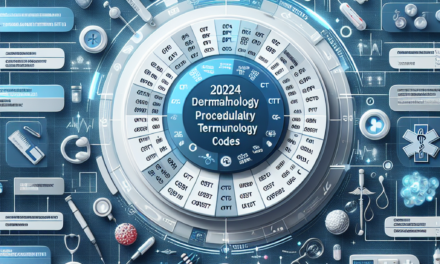Class Action Lawsuit Filed Against Atlanta BioLab

In recent months, the scientific community and the general public have been abuzz with news of a class action lawsuit filed against Atlanta BioLab, a prominent biotechnology company. This lawsuit has raised significant concerns about the ethical practices of biotech firms and the potential risks associated with their operations. In this article, we will delve into the details of the lawsuit, explore the implications for the biotech industry, and examine the broader impact on public health and safety.
Background of the Lawsuit
The class action lawsuit against Atlanta BioLab was initiated by a group of former employees and local residents who allege that the company engaged in unethical practices that jeopardized public health. The plaintiffs claim that the company failed to adhere to safety protocols, resulting in environmental contamination and health risks for nearby communities.
Atlanta BioLab, headquartered in the heart of Georgia, has been a key player in the biotechnology sector for over two decades. Known for its cutting-edge research and development in genetic engineering and pharmaceuticals, the company has been at the forefront of numerous scientific breakthroughs. However, recent allegations have cast a shadow over its reputation.
The lawsuit centers around the company’s handling of hazardous materials and its alleged failure to report safety violations to regulatory authorities. According to the plaintiffs, Atlanta BioLab’s negligence has led to the release of toxic substances into the environment, posing a significant threat to both human health and the ecosystem.
- Allegations of safety protocol violations
- Environmental contamination concerns
- Impact on local communities
As the legal proceedings unfold, the case has garnered widespread attention, prompting discussions about the responsibilities of biotech companies and the need for stricter regulatory oversight.
Implications for the Biotech Industry
The lawsuit against Atlanta BioLab has far-reaching implications for the biotechnology industry as a whole. It highlights the critical importance of maintaining rigorous safety standards and ethical practices in an industry that deals with potentially hazardous materials and cutting-edge technologies.
Biotechnology companies are at the forefront of scientific innovation, with the potential to revolutionize healthcare, agriculture, and environmental conservation. However, with great power comes great responsibility. The allegations against Atlanta BioLab underscore the need for companies to prioritize safety and transparency in their operations.
One of the key concerns raised by the lawsuit is the potential for regulatory gaps in the oversight of biotech firms. While regulatory bodies such as the Food and Drug Administration (FDA) and the Environmental Protection Agency (EPA) play a crucial role in monitoring the industry, the rapid pace of technological advancement can sometimes outstrip existing regulations.
- Need for updated regulatory frameworks
- Importance of transparency and accountability
- Balancing innovation with safety
The case against Atlanta BioLab serves as a wake-up call for the industry, emphasizing the need for companies to adopt proactive measures to ensure compliance with safety standards and to foster a culture of ethical responsibility.
Impact on Public Health and Safety
The allegations against Atlanta BioLab have raised significant concerns about the potential impact on public health and safety. The release of hazardous materials into the environment can have far-reaching consequences, affecting not only the immediate vicinity but also the broader ecosystem.
Local residents have reported a range of health issues, including respiratory problems, skin irritations, and other ailments that they attribute to exposure to toxic substances. These reports have prompted calls for comprehensive health assessments and environmental testing to determine the extent of the contamination and its impact on the community.
In addition to the immediate health risks, there are also concerns about the long-term effects of exposure to hazardous materials. Studies have shown that prolonged exposure to certain chemicals can increase the risk of chronic diseases, including cancer and neurological disorders.
- Health issues reported by local residents
- Need for comprehensive health assessments
- Long-term health risks associated with exposure
The lawsuit has also sparked discussions about the need for improved emergency response protocols and community engagement in the event of environmental incidents. Ensuring that local communities are informed and prepared to respond to potential risks is crucial for safeguarding public health and safety.
Case Studies and Precedents
The lawsuit against Atlanta BioLab is not an isolated incident. There have been several high-profile cases in recent years involving biotech companies and allegations of safety violations and environmental contamination. These cases provide valuable insights into the challenges and complexities of regulating the biotechnology industry.
One notable case is the lawsuit against a major pharmaceutical company in California, which was accused of improperly disposing of hazardous waste. The case resulted in a significant settlement and prompted changes in the company’s waste management practices.
Another example is the legal action taken against a genetic engineering firm in the Midwest, which faced allegations of releasing genetically modified organisms into the environment without proper authorization. The case highlighted the need for stringent oversight and transparency in the development and deployment of genetically modified technologies.
- California pharmaceutical company case
- Midwest genetic engineering firm case
- Lessons learned from past incidents
These case studies underscore the importance of robust regulatory frameworks and the need for companies to prioritize safety and ethical practices. They also highlight the potential consequences of non-compliance, both in terms of legal repercussions and damage to a company’s reputation.
Future Directions and Recommendations
As the lawsuit against Atlanta BioLab continues to unfold, it is essential to consider the broader implications for the biotechnology industry and the steps that can be taken to prevent similar incidents in the future. There are several key areas where improvements can be made to enhance safety and accountability in the industry.
First and foremost, there is a need for updated regulatory frameworks that keep pace with the rapid advancements in biotechnology. This includes not only stricter safety standards but also enhanced monitoring and enforcement mechanisms to ensure compliance.
In addition to regulatory measures, companies must also prioritize transparency and community engagement. This involves open communication with local communities about potential risks and proactive measures to address any concerns that may arise.
- Updating regulatory frameworks
- Enhancing transparency and community engagement
- Promoting a culture of ethical responsibility
Finally, fostering a culture of ethical responsibility within biotech companies is crucial. This includes not only adhering to safety protocols but also promoting a mindset of accountability and integrity at all levels of the organization.
Conclusion
The class action lawsuit filed against Atlanta BioLab serves as a stark reminder of the critical importance of safety and ethical practices in the biotechnology industry. As the case unfolds, it is essential for companies, regulators, and communities to work together to address the challenges and ensure that the benefits of biotechnology are realized without compromising public health and safety.
By priorit





